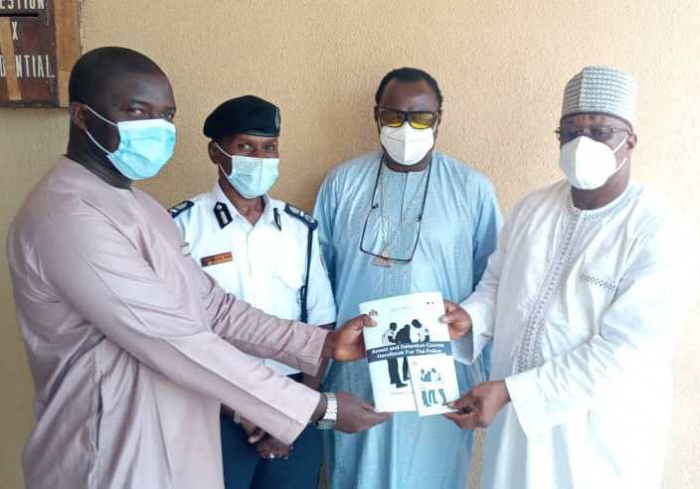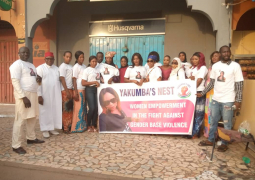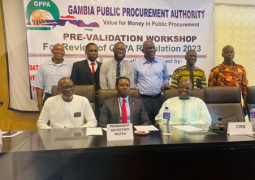
The presentation was held at The Gambia Police Force headquarters in Banjul.
The target beneficiaries are law enforcement officials, including new recruits and active police officers.
Pansaw Nyassi, interim country head DCAF Banjul reminded all that upholding the rule of law is recognized as a necessary precondition for sustainable peace, poverty alleviation and development.
Nyassi observed that crime and violence undermine social institutions, divert resources and ultimately hinder development.
He explained that a central feature of the rule of law is the equality of all before the law.
“This principle, all persons have the right to the protection of their rights by the state. Rule of law failures disproportionately affect poor and marginalized groups by limiting access to basic services and to justice. Since the beginning of its mandate, the current government has respected the rule of law, human rights and good governance as priorities in its reform agenda.”
He however, opined that unresolved problems affecting the criminal justice chain may hamper the government’s considerable efforts to date, adding that the criminal justice sector lacks the required capacity to effectively respond to people needs, a point which is notably demonstrated by the recurrence of inadequate prosecution of criminal cases.
“Errors by police officers in the legal qualification of offences upon arrest, arising from lack of knowledge of criminal law and procedures are one of the main causes identified.” he further said.
These shortcomings, he added, affect the commencement of the criminal chain, and have widespread effects on the criminal justice system.
Nyassi observed that lack of substantive knowledge of the law by the GPF often leads to erroneous legal qualification of crimes, or arbitrariness in the conduct of criminal investigation.
He equally pointed out that policing in a democratic environment is a challenge, particularly in a newfound nascent democracy like ours where there is a lot of unawareness and misinterpretation of democracy.
“Arrest, detention or imprisonment shall only by carried out strictly in accordance with the provisions of the law and by competent officials or persons authorised for that purpose”, he highlighted.
He cited that within the project, strengthening Criminal Justice in The Gambia, DCAF conducted activities aimed at enhancing the knowledge and skills of first responders to improve their performance in the criminal- justice process.
“Specifically, DCAF supported the development, training and dissemination of a simplified manual on criminal procedures, with focus on arrest and detention.” he also said.
According to him, it is anticipated that the arrest and detention manual and course handouts on arrest and detention will go a long way in making sure that errors in the qualification of crimes are minimised, and compliance with criminal procedures in cases of arrest and detention improved and the criminal justice chain is responsive to the security needs of the population.





